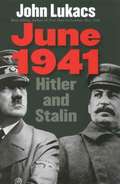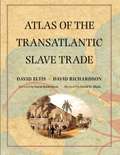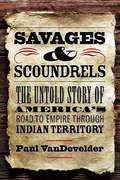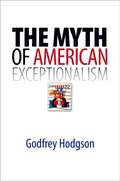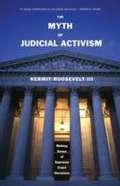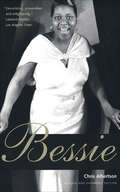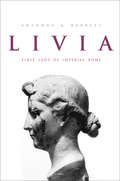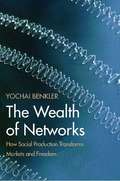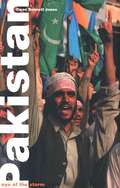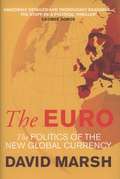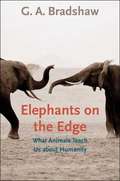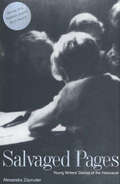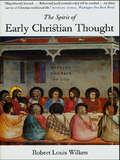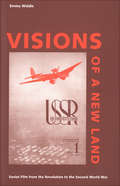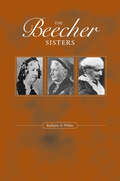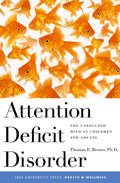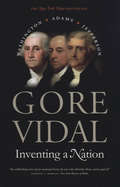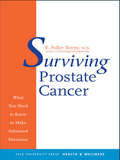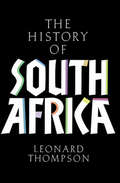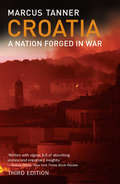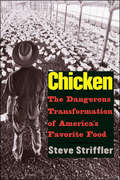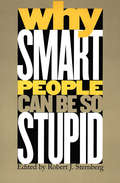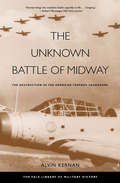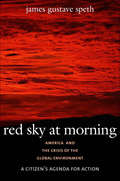- Table View
- List View
June 1941: Hitler and Stalin
by John LukacsThis brilliant new work by the author of the best-selling Five Days in London, May 1940 is an unparalleled drama of two great leaders confronting each other in June 1941. It describes Hitler and Stalin's strange, calculating, and miscalculating relationship before the German invasion of Soviet Russia, with its gigantic (and unintended) consequences. John Lukacs questions many long-held beliefs; he suggests, for example, that among other things Hitler's first purpose involved England: if Stalin's Communist Russia were to be defeated, Hitler's Third Reich would be well-nigh invincible, and the British and American peoples would be forced to rethink the war against Hitler. The book offers penetrating insights and a new portrait of Hitler and Stalin, moved by their long-lasting inclinations. Yet among other things, Lukacs presents evidence that Hitler (rather than his generals) had moments of dark foreboding before the invasion. Stalin could not, because he wished not, believe that Hitler would choose the risk of a two-front war by attacking him; he was stunned and shocked and came close to a breakdown. But he recovered, grew into a statesman, and eventually became a prime victor of the Second World War. Such are the ironies of history; John Lukacs paints them with a shining narrative skill.
Atlas of the Transatlantic Slave Trade
by David Eltis David Richardson James G. Basker David Blight David Brion Davis<P>Between 1501 and 1867, the transatlantic slave trade claimed an estimated 12. 5 million Africans and involved almost every country with an Atlantic coastline. In this extraordinary book, two leading historians have created the first comprehensive, up-to-date atlas on this 350-year history of kidnapping and coercion. <P>It features nearly 200 maps, especially created for the volume, that explore every detail of the African slave traffic to the New World. The atlas is based on an online database (www. slavevoyages. org) with records on nearly 35,000 slaving voyages--roughly 80 percent of all such voyages ever made. <P>Using maps, David Eltis and David Richardson show which nations participated in the slave trade, where the ships involved were outfitted, where the captives boarded ship, and where they were landed in the Americas, as well as the experience of the transatlantic voyage and the geographic dimensions of the eventual abolition of the traffic. <P> Accompanying the maps are illustrations and contemporary literary selections, including poems, letters, and diary entries, intended to enhance readers' understanding of the human story underlying the trade from its inception to its end. <P>This groundbreaking work provides the fullest possible picture of the extent and inhumanity of one of the largest forced migrations in history.
Savages and Scoundrels: The Untold Story of America's Road to Empire Through Indian Territory
by Paul VandevelderThis gripping book tells America's story from a new perspective, revealing a pattern of fraudulent government behavior that displaced Native Americans from their lands. It chronicles the adventures of our forefathers and showing how a legacy of repeated betrayals became the bedrock on which the republic was built.
The Myth of American Exceptionalism
by Godfrey HodgsonThe idea that the United States is destined to spread its unique gifts of democracy and capitalism to other countries is dangerous for Americans and for the rest of the world, warns Godfrey Hodgson in this provocative book.
The Myth Of Judicial Activism
by Kermit RooseveltThis carefully considered book is a welcome addition to the debate over "judicial activism." Constitutional scholar Kermit Roosevelt III offers an elegantly simple way to resolve the heated discord between conservatives, who argue that the Constitution is immutable, and progressives, who insist that it is a living document that must be reinterpreted in new cultural contexts so that its meaning evolves. Roosevelt uses plain language and compelling examples to explain how the Constitution can be both a constant and an organic document. Recent years have witnessed an increasing drumbeat of complaints about judicial behavior, focusing particularly on Supreme Court decisions that critics charge are reflections of the Justices' political preferences rather than enforcement of the Constitution. The author takes a balanced look at these controversial decisions through a compelling new lens of constitutional interpretation. He clarifies the task of the Supreme Court in constitutional cases, then sets out a model to describe how the Court creates doctrine to implement the meaning of the Constitution. Finally, Roosevelt uses this model to show which decisions can be justified as legitimate and which cannot.
1948: A History Of The First Arab-israeli War
by Benny MorrisThis history of the foundational war in the Arab-Israeli conflict is groundbreaking, objective, and deeply revisionist. A riveting account of the military engagements, it also focuses on the war's political dimensions. Benny Morris probes the motives and aims of the protagonists on the basis of newly opened Israeli and Western documentation. The Arab side-where the archives are still closed-is illuminated with the help of intelligence and diplomatic materials. Morris stresses the jihadi character of the two-stage Arab assault on the Jewish community in Palestine. Throughout, he examines the dialectic between the war's military and political developments and highlights the military impetus in the creation of the refugee problem, which was a by-product of the disintegration of Palestinian Arab society. The book thoroughly investigates the role of the Great Powers-Britain, the United States, and the Soviet Union-in shaping the conflict and its tentative termination in 1949. Morris looks both at high politics and general staff decision-making processes and at the nitty-gritty of combat in the successive battles that resulted in the emergence of the State of Israel and the humiliation of the Arab world, a humiliation that underlies the continued Arab antagonism toward Israel.
Bessie
by Chris AlbertsonThe definitive biography of musical legend Bessie Smith: &“A landmark in the writing of jazz history . . . First-rate&” (The Washington Post). Known as the &“Empress of the Blues,&” Bessie Smith was a successful vaudeville entertainer who became the highest paid African American performer of the Roaring Twenties. This revised and expanded biography debunks many of the myths that have circulated since her untimely death in 1937. Writing with insight and candor about the singer&’s personal life and career, the author supplements his research with dozens of interviews with her relatives, friends, and associates—in particular Ruby Walker Smith, a niece by marriage who toured with Bessie for over a decade. Also included in this updated edition are more details of Bessie&’s early years, new interview material, and a chapter devoted to events and responses that followed the book&’s original publication. &“The product of painstaking research . . . Devastating, provocative, and enlightening.&” —Los Angeles Times
Livia: First Lady of Imperial Rome
by Anthony A. BarrettThe author of Rome Is Burning separates fact from fiction as he examines the life of an ancient Roman figure made famous in the TV miniseries I Claudius.Livia—wife of the first Roman emperor, Caesar Augustus, and mother of the second, Tiberius—wielded extraordinary power at the center of Roman politics. In this biography of Livia, the first in English, Anthony Barrett sets aside the portrait of a cunning and sinister schemer to reveal Livia as a complex figure whose enduring political influence helped shape Roman government long after her death.&“An excellent biography of Livia—as appealing to the general reader as it is satisfying to the scholar.&” —Colin M. Wells, Trinity University, San Antonio&“In reading Anthony Barrett&’s biography of Livia, I not only learned about this remarkable woman, but also gained a meaningful appreciation of life and society in her time.&” —Howard Alper, President, The Royal Society of Canada &“First-rate.&” —Mary Beard, Times Literary Supplement
The Wealth of Networks
by Yochai BenklerWith the radical changes in information production that the Internet has introduced, we stand at an important moment of transition, says Yochai Benkler in this thought-provoking book. The phenomenon he describes as social production is reshaping markets, while at the same time offering new opportunities to enhance individual freedom, cultural diversity, political discourse, and justice. But these results are by no means inevitable: a systematic campaign to protect the entrenched industrial information economy of the last century threatens the promise of today's emerging networked information environment. In this comprehensive social theory of the Internet and the networked information economy, Benkler describes how patterns of information, knowledge, and cultural production are changing-and shows that the way information and knowledge are made available can either limit or enlarge the ways people can create and express themselves. He describes the range of legal and policy choices that confront us and maintains that there is much to be gained-or lost-by the decisions we make today.
Pakistan: Eye of the Storm
by Owen Bennett JonesPakistan, a nation for only fifty-five years, has had a turbulent history. Ruled by the military for half its existence, it has seen three wars with India and the loss of much of its territory. The combination of political instability, deep-seated economic and social problems, and access to nuclear weapons has made it one of the most strategically sensitive countries in the world. The war in neighboring Afghanistan has placed it at the very center of global attention and projected its military ruler, General Pervez Musharraf, onto the world stage. Musharraf has become the first Pakistani leader in thirty years to dare to confront the country's Islamic extremists. But can he succeed in controlling the forces that helped create the Taliban in Afghanistan? In this riveting history of Pakistan from 1947 to the present, Bennett Jones describes the many fault lines in Pakistani society. While most Pakistanis have a moderate, tolerant vision of Islam, he argues, the country's central institutions are so weak that the military regime may prove incapable of rescuing the "failed state" of Pakistan.
The Euro: The Politics of the New Global Currency
by David MarshThis book is the first comprehensive political and economic account of the birth and development of the Euro. Today the Euro is the supranational currency for sixteen European countries and the world's second-largest reserve currency. David Marsh tells the story of the rivalries, intrigues, and deal making that brought about a currency for Europe, and he analyzes the achievements and shortcomings of its first decade of existence. While the Euro represents a remarkable triumph of political will, great pressures are building on the single currency. Drawing on more than 100 interviews with leading figures associated with the Euro, and scores of secret documents from international archives, Marsh underscores the Euro's importance for the global economy, in particular for U. S. and British economic and political agendas. Hidden facts and fresh insights from The Euro: --How the legacy of France and Germany's tortuous relations affects the Euro --Why the United Kingdom is unlikely to accept the Euro before 2025 --The impact on the Euro of the U.S. credit crisis --How the Euro has rebounded against the aspirations of its founders --How Italy and Spain have massively lost competitiveness --Why radical changes must be adopted to prevent a European upheaval.
Elephants on the Edge: What Animals Teach Us about Humanity
by G. A. BradshawDrawing on accounts from India to Africa and California to Tennessee, and on research in neuroscience, psychology, and animal behavior, the author explores the minds, emotions, and lives of elephants.
Salvaged Pages: Young Writers' Diaries of the Holocaust
by Alexandra ZapruderThis stirring collection of diaries written by young people during the Holocaust reflects a vast and diverse range of experiences-some of the writers were refugees, others were hiding or passing as non-Jews, some were imprisoned in ghettos. The book offers the first comprehensive collection of such writings, with extensive excerpts from fifteen diaries, ten of which have never before been translated and published in English. The diarists ranged in age from twelve to twenty-two; some survived the Holocaust, but most perished. Taken together, their accounts of daily events and their often unexpected thoughts, ideas, and feelings serve to deepen and complicate our understanding of life during the Holocaust. The volume begins with a discussion of Anne Frank's diary and offers a new framework for thinking about the diaries young people produced in this time of extreme crisis. Alexandra Zapruder assesses the value of these literary fragments as part of the historical record of the Holocaust and provides informative introductions about when and where each diary was written; the diarist's biographical, religious, cultural, and economic circumstances; the fate of the diarist; the circumstances of the diary's discovery. Finally she offers a view of the diary's significance. An appendix gives details about the known diaries written by young people during this period, more than fifty-five in all. A second appendix provides a study of related materials, such as rewritten and reconstructed diaries, letters, diary-memoirs, and texts by non-Jewish young victims of the war and Nazism.
The Spirit of Early Christian Thought
by Robert Louis WilkenWritten by a preeminent religious historian, this book provides an introduction to early Christian thought. Focusing on major figures such as St. Augustine and Gregory of Nyssa, as well as a host of less well known thinkers, Robert Wilken chronicles the emergence of a specifically Christian intellectual tradition. In chapters on topics including early Christian worship, Christian poetry and the spiritual life, the Trinity, Christ, the Bible, and icons, Wilken shows that the energy and vitality of early Christianity arose from within the life of the Church. While early Christian thinkers drew on the philosophical and rhetorical traditions of the ancient world, it was the versatile vocabulary of the Bible that loosened their tongues and minds and allowed them to construct the world anew, intellectually and spiritually. These thinkers were not seeking to invent a world of ideas, Wilken shows, but rather to win the hearts of men and women and to change their lives. Early Christian thinkers set in place a foundation that has endured. Their writings are an irreplaceable inheritance, and Wilken shows that they can still be heard as living voices within contemporary culture.
Visions of a New Land
by Emma WiddisIn 1917 the Bolsheviks proclaimed a world remade. The task of the new regime, and of the media that served it, was to reshape the old world in revolutionary form, to transform the vast, "ungraspable" space of the Russian Empire into the mapped territory of the Soviet Union. This book shows how Soviet cinema encouraged popular support for state initiatives in the years between the revolution and the Second World War, helping to create a new Russian identity and territory--an "imaginary geography" of Sovietness. Drawing on a vast range of little-known texts, Emma Widdis offers a unique cultural history of the early Soviet period. In particular, she shows how films projected the new Soviet map onto the great shared screen of the popular imagination.
The Beecher Sisters
by Barbara A. WhiteA &“rich, varied, sensitive&” biography of three nineteenth-century women: an educator, an early feminist, and the author of Uncle Tom&’s Cabin (Publishers Weekly). Daughters of the famous evangelist Lyman Beecher, Catherine, Harriet, and Isabella could not follow their father and seven brothers into the ministry. Nonetheless, they carved out path-breaking careers for themselves. Catharine Beecher founded the Hartford Female Seminary and devoted her life to improving women&’s education. Harriet Beecher Stowe became world famous as the author of Uncle Tom&’s Cabin. And Isabella Beecher Hooker was an outspoken advocate for women&’s rights. This engrossing book is a joint biography of the sisters, whose lives spanned the full course of the nineteenth century. The life of Isabella Beecher—who has never been the subject of a biography—is examined in particular detail here, as Barbara White draws on little used sources to explore Isabella&’s political development and her interactions with her sisters and with prominent people of the time—from Susan B. Anthony and Elizabeth Cady Stanton to Mark Twain.
Attention Deficit Order: The Unfocused Mind in Children and Adults
by Thomas E. BrownMyths about Attention Deficit Disorder/Attention Deficit/Hyperactivity Disorder(ADD/ADHD) abound. This disorder frequently goes unrecognized, and even when diagnosed may be inadequately treated. In this up-to-date and clearly written book, a leading expert offers a new way of understanding ADD. Drawing on recent findings in neuroscience and a rich variety of case histories from his own clinical practice, Dr. Thomas E. Brown describes what ADD syndrome is, how it can be recognized at different ages, and how it can best be treated. This is the first book to address the perplexing question about ADD: how can individuals, some very bright, be chronically unable to "pay attention," yet be able to focus very well on specific tasks that strongly interest them? Dr. Brown disputes the "willpower" explanation and explains how inherited malfunctions of the brain's management system prevent some people from being able to deal adequately with challenging tasks of childhood, adolescence, and adulthood. His book is an authoritative and practical guide for physicians and psychologists, parents and teachers, and the 7 to 9 percent of persons who suffer from ADD/ADHD.
Inventing a Nation: Washington, Adams, Jefferson (Icons of America)
by Gore VidalThis New York Times bestseller offers &“an unblinking view of our national heroes by one who cherishes them, warts and all&” (New York Review of Books). In Inventing a Nation, National Book Award winner Gore Vidal transports the reader into the minds, the living rooms (and bedrooms), the convention halls, and the salons of George Washington, Thomas Jefferson, John Adams, and others. We come to know these men, through Vidal&’s splendid prose, in ways we have not up to now—their opinions of each other, their worries about money, their concerns about creating a viable democracy. Vidal brings them to life at the key moments of decision in the birthing of our nation. He also illuminates the force and weight of the documents they wrote, the speeches they delivered, and the institutions of government by which we still live. More than two centuries later, America is still largely governed by the ideas championed by this triumvirate. The author of Burr and Lincoln, one of the master stylists of American literature and most acute observers of American life, turns his immense literary and historiographic talent to a portrait of these formidable men
Surviving Prostate Cancer
by E. Fuller TorreyWhen Dr. E. Fuller Torrey was diagnosed with prostate cancer, none of the books he could find was current enough or comprehensive enough to satisfy his need for information. This book is for the hundreds of thousands of other men who each year receive the same frightening diagnosis. It is the book Dr. Torrey wished he had when he was facing the countless questions that a man with prostate cancer, and his family and friends, all confront. Complete, up-to-date, and readable, the book explains how to come to terms with the diagnosis of prostate cancer, evaluate the severity of the disease, and assess the variety of treatment options and their complications. Many chapters provide information other books barely consider, such as a full discussion of the causes of prostate cancer and an evaluation of other books on the subject. Also included is a summary of the most useful Web sites. The author mixes his personal experience with factual material, and he maintains a reassuring sense of humor. His advice is practical, with dozens of tips and lists including "Ten Steps to Sanity for Men Recently Diagnosed with Prostate Cancer." With Dr. Torrey's book in hand, readers can now tackle all the important decisions about prostate cancer, confident in having the most accurate and complete information available.
A History of South Africa
by Leonard ThompsonA leading scholar of South Africa provides a fresh and penetrating exploration of that country's history, from the earliest known human inhabitation of the region to the present. Focusing primarily on the experiences of its black inhabitants, this richly illustrated book is essential reading for anyone wishing to understand the historical patterns behind the conflicts that rage in this troubled land.
Croatia
by Marcus TannerFrom the ashes of former Yugoslavia an independent Croatian state has arisen, the fulfillment, in the words of President Franjo Tudjman, of the Croats' "thousand-year-old dream of independence. " Yet few countries in Europe have been born amid such bitter controversy and bloodshed: the savage war between pro-independence forces and the Yugoslav army left about one-third of the country in ruins and resulted in the flight of a quarter of a million of the country's Serbian minority. In this book an eyewitness to the breakup of Yugoslavia provides the first full account of the rise, fall, and rebirth of Croatia from its medieval origins to today's tentative peace. Marcus Tanner describes the creation of the first Croatian state; its absorption into feudal Hungary in the Middle Ages; the catastrophic experience of the Ottoman invasion; the absorption of the diminished country into Habsburg Austria; the evolution of modern Croatian nationalism after the French Revolution; and the circumstances that propelled Croatia into the arms of Nazi Germany and the brutal, home-grown "Ustashe" movement in the Second World War. Finally, drawing on first-hand knowledge of many of the leading figures in the conflict, Tanner explains the failure of Tito's Communists to solve Yugoslavia's tortured national problem by creating a federal state, and the violent implosion after his death. Croatia's unique position on the crossroads of Europe-between Eastern and Western Christendom, the Mediterranean, and the Balkans and between the old Habsburg and Ottoman empires-has been both a curse and a blessing, inviting the attention of larger and more powerful neighbors. The turbulence and drama of Croatia's past are vigorously portrayed in this powerful history.
Chicken: The Dangerous Transformation of America's Favorite Food
by Steve StrifflerAnthropologist Steve Striffler begins this book in a poultry processing plant, drawing on his own experiences there as a worker. He also reports on the way chickens are raised today and how they are consumed. What he discovers about America's favorite meat is not just unpleasant but a powerful indictment of our industrial food system. The process of bringing chicken to our dinner tables is unhealthy for all concerned, from farmer to factory worker to consumer. The book traces the development of the poultry industry since the Second World War, analyzing the impact of such changes as the destruction of the family farm, the processing of chicken into nuggets and patties, and the changing makeup of the industrial labor force. The author describes the lives of immigrant workers and their reception in the small towns where they live. The conclusion is clear: there has to be a better way. Striffler proposes radical but practical change, a plan that promises more humane treatment of chickens, better food for the consumer, and fair payment for food workers and farmers.
Why Smart People Can Be So Stupid
by Robert J. Sternberg&“A serious attempt to understand a common phenomenon&” from the author of The Nature of Human Intelligence (Psychology Today). One need not look far to find breathtaking acts of stupidity committed by people who are smart, or even brilliant. The behavior of clever individuals—from presidents to prosecutors to professors—is at times so amazingly stupid as to seem inexplicable. Why do otherwise intelligent people think and behave in ways so stupid that they sometimes destroy their livelihoods or even their lives? This is an investigation of psychological research to see what it can tell us about stupidity in everyday life. The contributors to the volume—scholars in various areas of human intelligence—present examples of people messing up their lives, and offer insights into the reasons for such behavior. From a variety of perspectives, the contributors discuss: The nature and theory of stupidityHow stupidity contributes to stupid behaviorWhether stupidity is measurable. While many millions of dollars are spent each year on intelligence research and testing to determine who has the ability to succeed, next to nothing is spent to determine who will make use of their intelligence and not squander it by behaving stupidly. The contributors focus on the neglected side of this discussion, reviewing the full range of theory and research on stupid behavior and analyzing what it tells us about how people can avoid stupidity and its devastating consequences. &“Marvelous, devilishly clever, and culturally timely book . . . A fascinating exploration.&” —Choice &“Easily readable and well referenced . . . May provide just enough momentum for change.&” —International Journal of Intelligence
The Unknown Battle of Midway: The Destruction of the American Torpedo Squadrons (The Yale Library of Military History)
by Alvin Kernan&“A memoir and more . . . Kernan brings this maritime battle superbly to life. . . . And he narrates the air assault in gripping detail&” (The Wall Street Journal). The Battle of Midway is considered the greatest US naval victory, but behind the luster is the devastation of the American torpedo squadrons. Of the 51 planes sent to attack Japanese carriers only 7 returned, and of the 127 aircrew only 29 survived. Not a single torpedo hit its target. A story of avoidable mistakes and flawed planning, The Unknown Battle of Midway reveals the enormous failures that led to the destruction of four torpedo squadrons but were omitted from official naval reports: the planes that ran out of gas, the torpedoes that didn&’t work, the pilots who had never dropped torpedoes, and the breakdown of the attack plan. Alvin Kernan, who was present at the battle, has written a troubling but persuasive analysis of these and other little-publicized aspects of this great battle. The standard navy tactics for carrier warfare are revealed in tragic contrast to the actual conduct of the battle and the after-action reports of the ships and squadrons involved. &“An incisive and laconic writer, Kernan knows his facts and presents them with deep feeling. A World War II must-read.&” —Booklist &“I read The Unknown Battle of Midway in one sitting. It is a momentous piece of work, reeking of the authenticity of carrier warfare as experienced by the flight crews.&” —Sir John Keegan, author of A History of Warfare &“An emotionally powerful story, not merely one of war but of its lasting effects.&” —The Times Literary Supplement
Red Sky at Morning: America and the Crisis of the Global Environment
by James Gustave SpethThis book will change the way we understand the future of our planet. It is both alarming and hopeful. James Gustave Speth, renowned as a visionary environmentalist leader, warns that in spite of all the international negotiations and agreements of the past two decades, efforts to protect Earth's environment are not succeeding. Still, he says, the challenges are not insurmountable. He offers comprehensive, viable new strategies for dealing with environmental threats around the world. The author explains why current approaches to critical global environmental problems-climate change, biodiversity loss, deterioration of marine environments, deforestation, water shortages, and others-don't work. He offers intriguing insights into why we have been able to address domestic environmental threats with some success while largely failing at the international level. Setting forth eight specific steps to a sustainable future, Speth convincingly argues that dramatically different government and citizen action are now urgent. If ever a book could be described as "essential," this is it.
